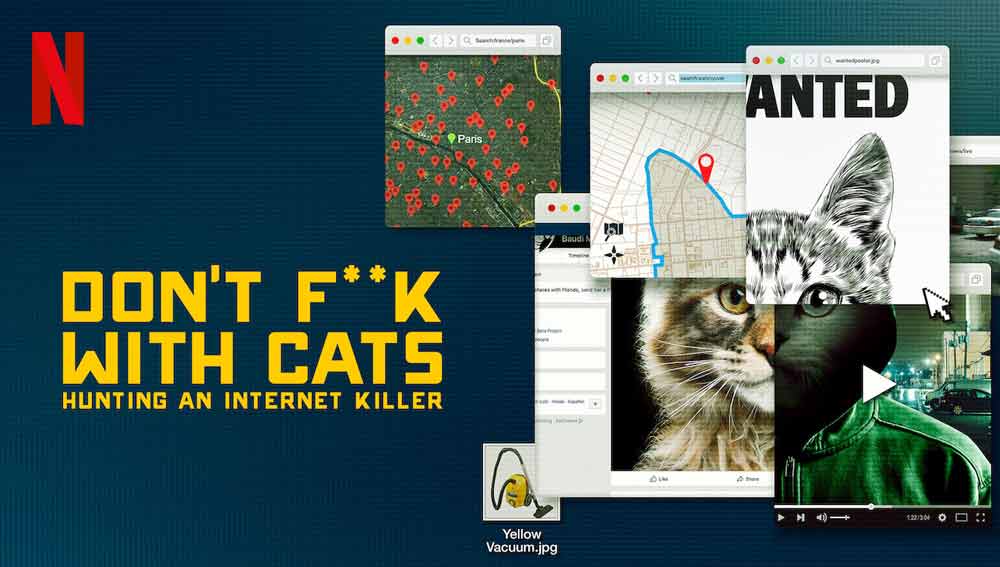“Don’t F**k With Cats: Hunting An Internet Killer” is a Netflix true crime documentary. It recounts the story of a group of online sleuths who set out to identify and catch a person who posted videos of himself killing cats on the internet. The three-part series, which premiered on Netflix in 2019, takes viewers on a gripping journey. As the group of amateur detectives races against time to uncover the identity of the killer and bring him to justice.
The documentary begins with a video posted on Facebook in 2010, showing a man suffocating two kittens. The video quickly goes viral, sparking outrage and disgust across the internet. This event sets off a chain of events that would eventually lead to the discovery of the killer’s true identity and his arrest for the murder of a man in Canada.
As the story unfolds, we are introduced to the online community of amateur sleuths who took it upon themselves to track down the killer. They scour the internet for any clues or information that could lead to his identity. Using their collective knowledge and expertise, the group pieces together a trail of evidence. It eventually leads them to the killer’s identity.
One of the key takeaways from the documentary is the power of online communities to solve crimes. The group of amateur sleuths in “Don’t F**k With Cats” were united by a common cause. Their collective efforts played a significant role in identifying the killer. The series showcases the importance of people coming together to share their knowledge and expertise. Also sheds light on how online communities can make a real difference in solving crimes.
Another important aspect of the documentary is the ethical questions it raises. For example, the use of social media in criminal investigations. While the online sleuths in the series were successful in identifying the killer, their methods were controversial and raised questions about privacy and the potential for vigilantism. The documentary serves as a cautionary tale about the dangers of vigilante justice. Also, the importance of following proper procedures in criminal investigations.
True crime has grown in popularity over the years, with numerous podcasts, books, and documentaries dedicated to the genre. However, it’s important to remember that true crime isn’t for everyone. Here are some reasons why:
It can be triggering: True crime often involves graphic details about violent crimes. For some people, this can be triggering and cause anxiety or distress. It’s important to prioritize your mental health and avoid true crime content if it makes you uncomfortable.
It can be addictive: True crime can be fascinating, but it can also be addictive. Some people may find themselves spending hours reading or listening to true crime content, even if it’s causing them distress. It’s important to set boundaries and be mindful of how much time you’re spending on true crime, just as you would do if you were using the 22Bet app.
It can be unproductive: While true crime can be entertaining and informative, it may not always be the most productive use of your time. Instead of consuming endless true crime content, consider using your time to learn about social issues, volunteering in your community, or advocating for change.
In conclusion, true crime isn’t for everyone. While it can be a fascinating and informative genre, it’s important to be mindful of its potential to trigger anxiety, perpetuate harmful stereotypes, and be unproductive or even exploitative. If you’re uncomfortable with true crime, that’s perfectly okay – there are plenty of other genres to explore.
